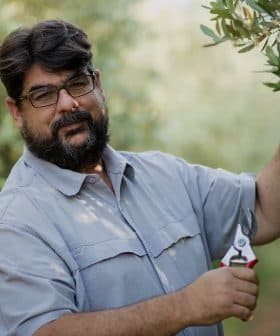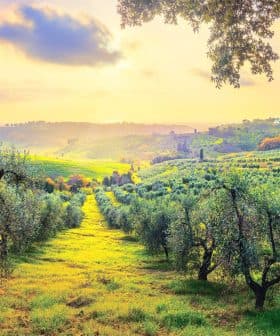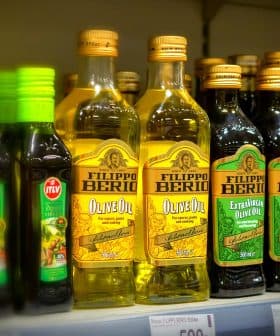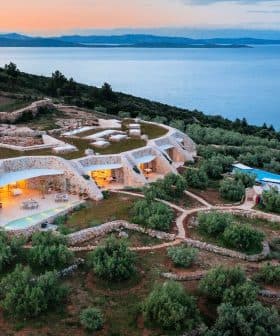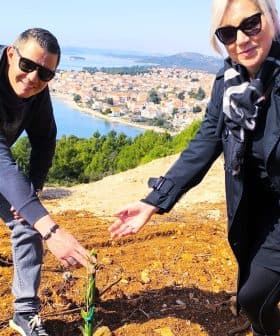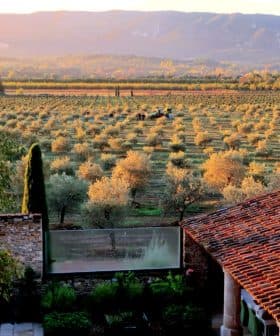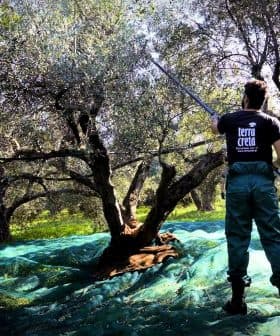In Minas Gerais, Production and Tourism Go Hand in Hand
Among the fruit and coffee plantations of Minas Gerais, olive trees have taken root. Despite the region's unconventional climate, local producers are creating a new kind of olive oil culture in Brazil.
 Mauricio Carvalho Dias, owner of Fazenda Irarema
Mauricio Carvalho Dias, owner of Fazenda IraremaIn Minas Gerais, Brazil, olive trees have been successfully cultivated alongside coffee plantations, despite the challenging weather conditions. Local producers have embraced high-quality olive oil production and oleotourism as a way to educate the public about their products, with some farms attracting up to 600 visitors per weekend and gaining international recognition for their oils. Despite the high production costs and challenges like fungal diseases and hailstorms impacting harvests, producers in Minas Gerais are motivated to reinvent themselves and promote a culture of olive oil consumption in Brazil.
Next to the coffee plantations and among lush vegetation, olive trees have made their presence known in Minas Gerais, a region northeast of São Paulo, Brazil.
Fighting against the weather, but with faith and perseverance, producers here have gone all-in on high-quality olive oil production and oleotourism as a way to educate the public about their products.
(The weather) is a reality that discourages many, but for others, it motivates them to reinvent themselves.
Shades of green envelop visitors who arrive in the Sierra da Mantiqueira of Minas Gerais, three hours east of São Paulo, where palm trees mix with bananas and coffee plantations to cover the hillsides. For some years now, olive trees have sought and found their place in this fertile and colorful ecosystem.
It was a curious landscape to find this species so associated with a Mediterranean climate during a visit last month when the harvest began in Brazil — one of the newest actors in the world of olive oil production.
See Also:Production NewsWe found nothing resembling the olive groves of the Mediterranean here. Minas Gerais is anything but traditional, and its olive growing is as surprising as its land and people.
As the Miners, as the region’s inhabitants are known, explain, they can have all four seasons in two hours, but a few things are constant. There will always be humidity, too much water, and that a cloud will discharge all its fury in the middle of the harvest is more a certainty than a possibility. But then the sun rises, a rainbow appears and, well, who can resist that?
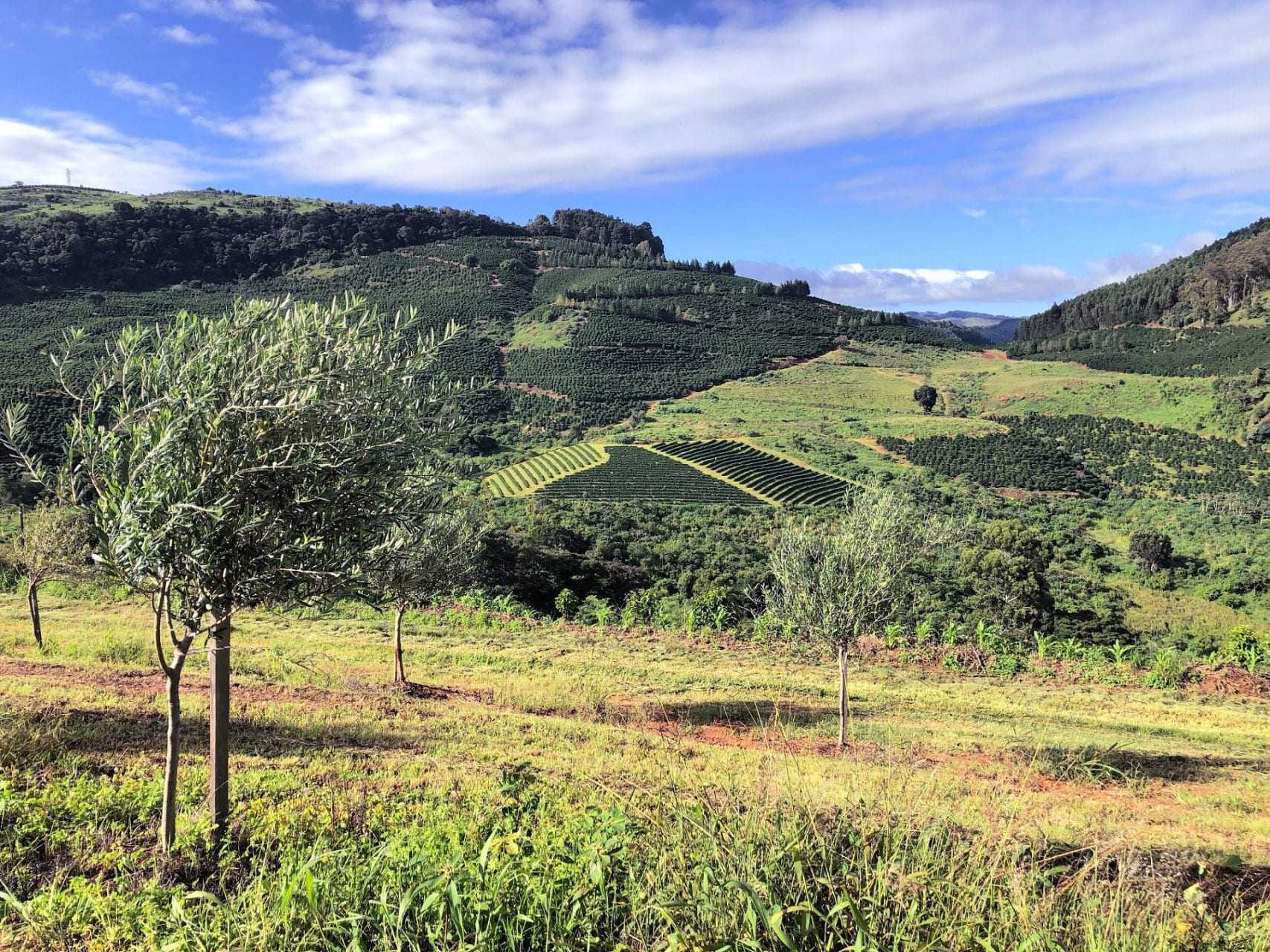
Sierra da Mantiqueira, Brazil
So we forget everything we know about the olive tree — water stress, thermal oscillation, planting frames — and we allow ourselves to be surprised because the truth is that about 10 years ago, the producers in this area — one of the most famous terroirs for the cultivation of coffee — began to plant olive trees.
It has been a couple of years since then and the oils produced in the region have gained ground in international competitions.
One producer, Fazenda Irarema, who won a Gold Award at the 2019 NYIOOC for its blend, is 12 kilometers (7.5 miles) from Poços de Caldas, an area known for its volcanic soil and thermal springs which attract a large number of tourists on weekends.
Here, the Carvalho Dias family settled forty years ago. Monica had a dream to live in the area near her cousin. At first, her husband, Mauricio, insisted there was nothing to buy there, but eventually gave in and the couple arrived at what would become their new home.
The fazenda, founded in 1870, had been completely abandoned for five years when they arrived. Today, it is composed of neat, well-kept fields, where fruits, vegetables, nuts, one of the most awarded coffees in the world — and olive oil — are grown and produced.
The combination of the landscape and production process led the Carvalho Dias family to open the doors of their home, and they now receive up to 600 visitors at Fazenda Irarema every weekend.
The experience is complete, including the chance to see the agricultural process and visit the farm shop where soap and other cosmetics made with the oils and its byproducts are produced and sold.
Next door to the farm is Bemdita, a premium meat shop, produced in the area under strict care and managed by Carol, whose husband, Moacir, the son of Monica and Maurício, directs the oil mill, managing each machine and controlling each extraction.
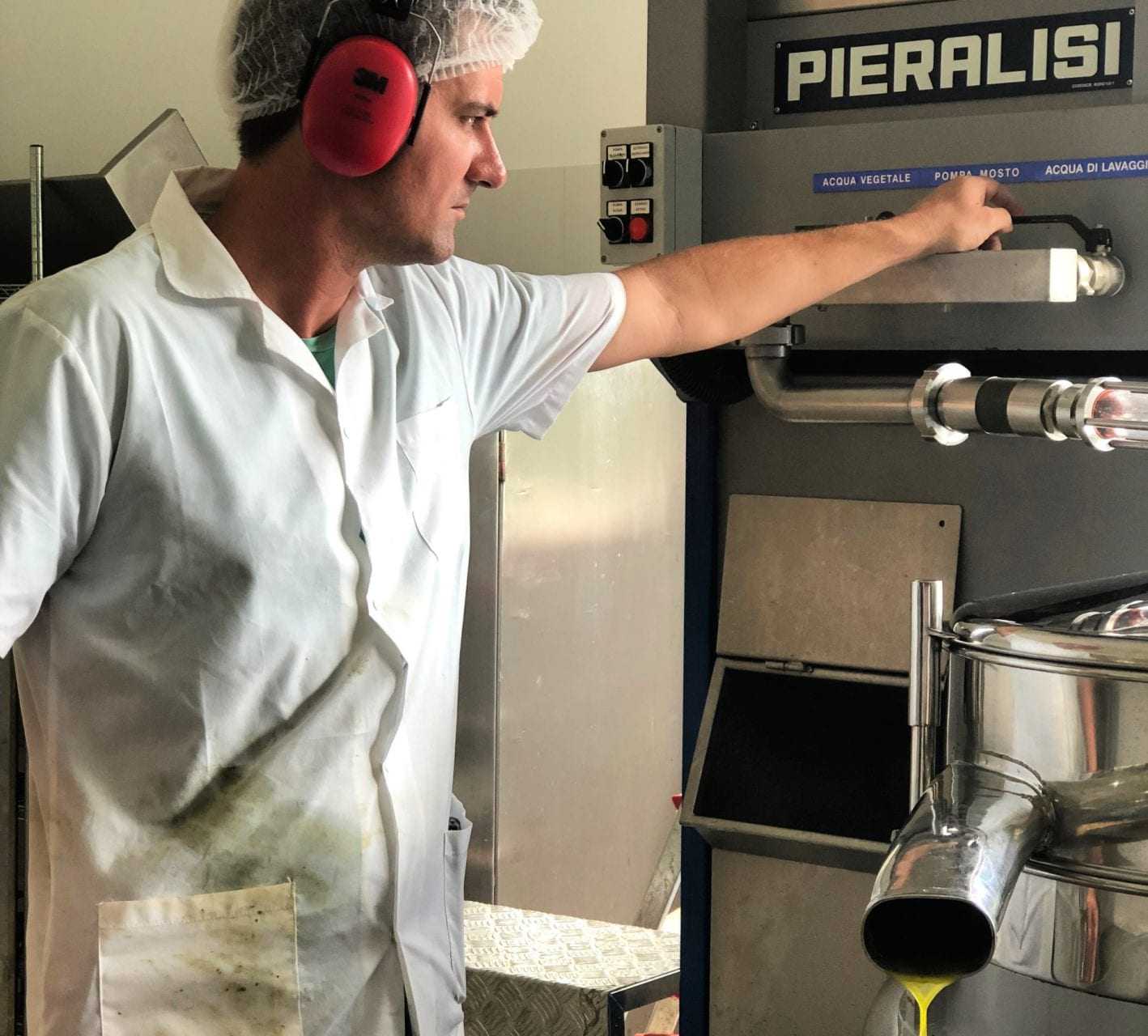
Moacir Carvalho Dias
His sister works in the adjoining restaurant, where tourists enjoy local products paired with oils. Even the grandchildren, the third generation, participate by selling fruits that they collect themselves.
Maurício knows every inch of the field, and weighs new methods and technologies to improve the production and quality of the fruit; a real challenge due to the climate and abundance of pests.
Neighboring Irarema is the Fazenda Rainha, where the famous Orfeu coffee is produced and, some years ago, olive oil too.
The project, owned by the Marinho family who controls the media giant O’Globo, is in the process of launching its brand. Here, the harvest is done in the traditional way on land that, besides being incredibly green, is also mountainous.
The cost of producing in Minas Gerais is high, between $5 and $6 per liter, and therefore, the prices of the oils are also high.
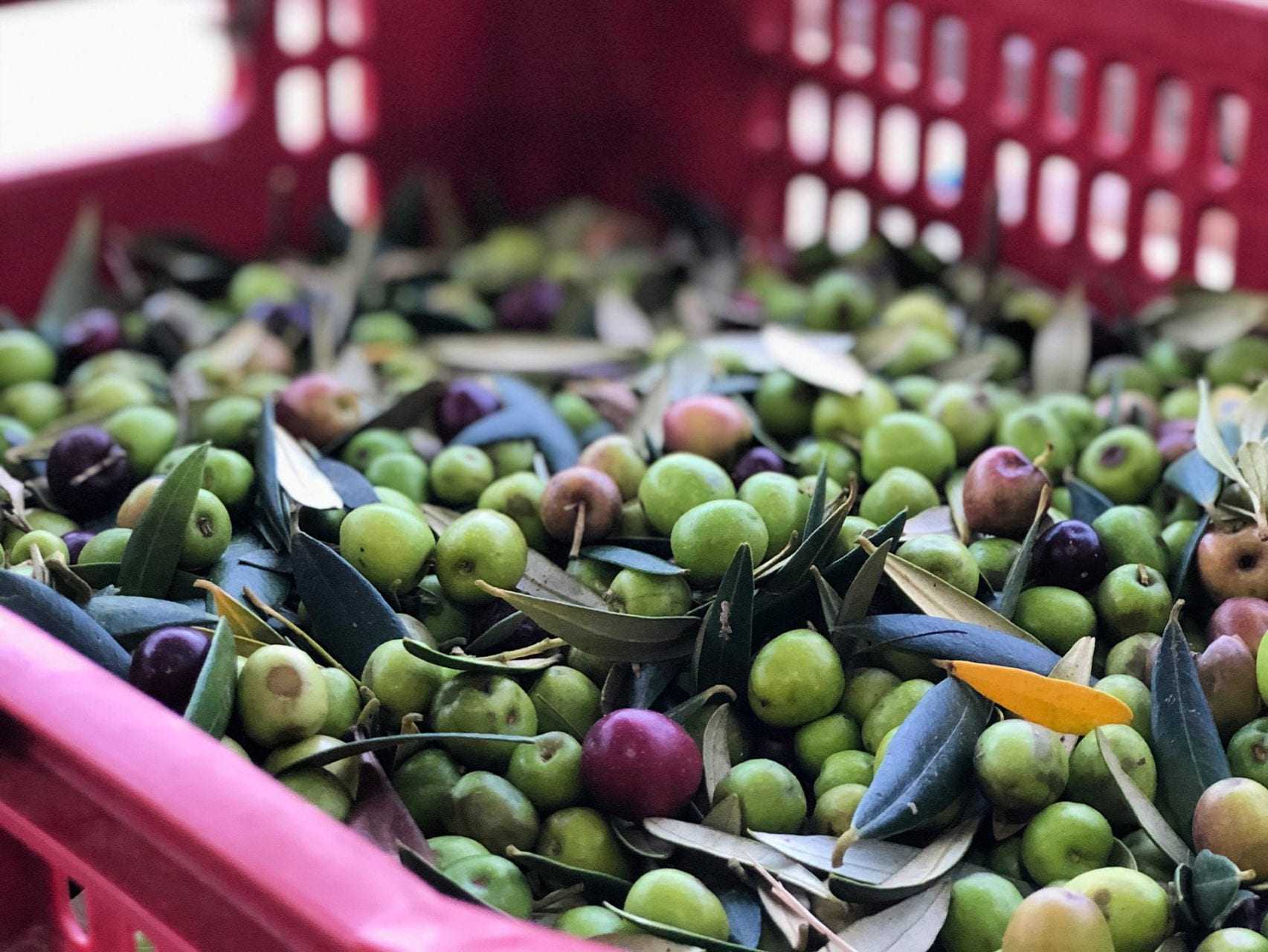
Brazil produced 230,000 liters in 2019, and 40 percent of the total came from this region (the other 60 percent was produced in the south of the country).
In 2020, production in the area will be 30 percent lower than in 2019. Fungi and strong hail storms in the flowering season have impacted the harvest.
“It is a reality that discourages many, but for others, it motivates them to reinvent themselves, creating experiences, such as oleotourism, which are new in Brazil and allow us to create a culture of olive oil,” said Ana Beloto, a taster, columnist and marketing expert, who has been introducing olive oil brands in the region for 18 years.
“We have to advance in education so that people know, value and consume good olive oils — a path that is not easy, but it is totally possible,” she added.
A few kilometers away, Carla Borriello, explained that the production in Minas Gerais points to differentiation. She has already managed to introduce her oil, Borriello, in some of the most important restaurants in São Paulo.
Her problem is not selling the oil but rather the small volume she is able to obtain — barely 2,000 liters are expected in 2020. She believes there are great opportunities for olive oil producers in the country, which despite having very low per-capita consumption (less than one liter), has a large urban population willing to pay for quality.
In a market dominated by low-grade industrial brands, she noted, there is an opportunity to build on the high quality of local production.


